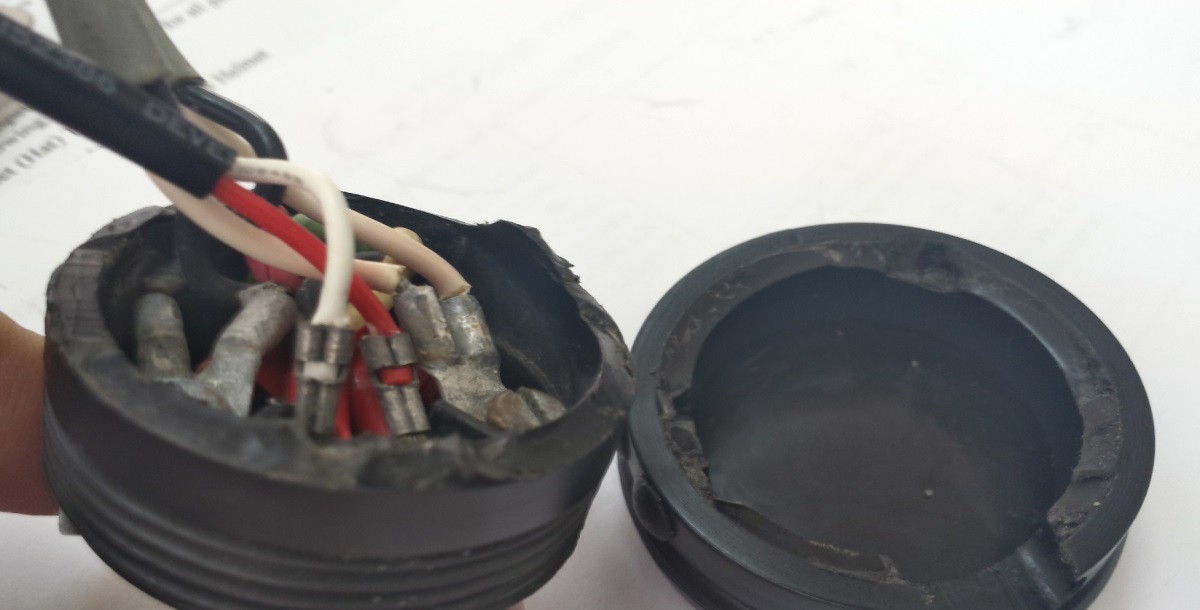Near-miss: Failure of diving helmet communications module
- Safety Flash
- Published on 3 October 2014
- Generated on 23 February 2026
- IMCA SF 16/14
- 2 minute read
Jump to:
A Member has reported an incident where the communications module on a Kirby Morgan KM 37 diver’s helmet failed at the interface between the threaded section and the main module.
What happened?
The incident occurred during a dive to 12 msw. The diver was able to reduce the loss of air from his helmet by placing his hand over the partial opening and return to the surface in a controlled manner. The module did not fall out of the aperture in the helmet. There were no injuries.

Broken helmet communications module
Our member’s investigation revealed the following:
- The module had never been removed from the helmet.
- The helmet had been in storage for several years since purchase with minimal use.
- Water temperature was less than 2°C; Depth: 12 msw.
- No tool marks were found on the securing nut to suggest over tightening.
The failed module was sent to the supplier for inspection and analysis. The supplier inspected the part and performed in-house testing of off the shelf inventory overstressing at worst case levels. It was reported the parts withstood extreme stress tests at elevated and sub-freezing temperatures and passed all inspection criteria. The supplier found that failure of the module appeared to be an isolated case and referred the member to Kirby Morgan Bulletin #1 of 2009.
Our member took the following actions:
- Supplier would include, in checklists, that the module should be regularly loosened and retightened during checks, by hand.
- Inspection of all such communications modules -none found with potential failure indications, even in older helmets in more frequent use.
- A recommended inspection/check process was initiated.
IMCA Safety Flashes summarise key safety matters and incidents, allowing lessons to be more easily learnt for the benefit of the entire offshore industry.
The effectiveness of the IMCA Safety Flash system depends on the industry sharing information and so avoiding repeat incidents. Incidents are classified according to IOGP's Life Saving Rules.
All information is anonymised or sanitised, as appropriate, and warnings for graphic content included where possible.
IMCA makes every effort to ensure both the accuracy and reliability of the information shared, but is not be liable for any guidance and/or recommendation and/or statement herein contained.
The information contained in this document does not fulfil or replace any individual's or Member's legal, regulatory or other duties or obligations in respect of their operations. Individuals and Members remain solely responsible for the safe, lawful and proper conduct of their operations.
Share your safety incidents with IMCA online. Sign-up to receive Safety Flashes straight to your email.